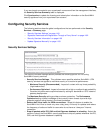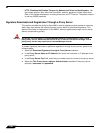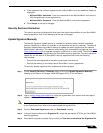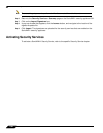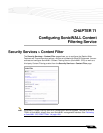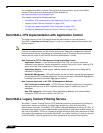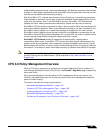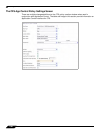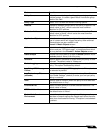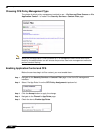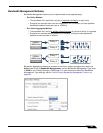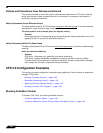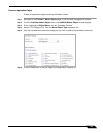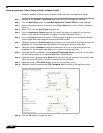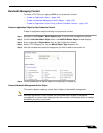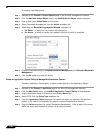
Security Services > Content Filter
1189
SonicOS 5.8.1 Administrator Guide
Feature Function
Policy Name A friendly name for the policy. If applying a single policy to
multiple groups, it is often a good idea to include the group
name in this field.
Policy Type Select “CFS” to show the content filtering options.
Address Address or address group to which this policy is applied. The
default value is “Any”, which is also the most common
selection for CFS policies.
Exclusion Address Address or address group to exclude from this policy. The
default value is “None”, which is also the most common
selection for CFS policies.
Application Object Select the relevant application object, this object dictates the
type of content which will trigger the policy to be enforced.
These objects are user-created in the
Firewall > Match Objects screen.
Action Select the action to perform. These can be pre-defined
actions such as “CFS block page”, or custom actions which
you may define in the Firewall > Action Objects screen.
Users/Groups Choose individual users or groups to Include (default: All) or
Exclude (default: None) from this policy.
Schedule Select a specific schedule to dictate when this policy is to be
enforced. The default value is “Always on”.
Enable Logging Select to enable logging of any actions taken on behalf of this
policy. This option is selected by default.
Log Using CFS Message
Format
Select to use the legacy CFS logging format. This option is
not selected by default.
Log Redundancy Filter
(seconds)
Dictates the sensitivity of the log-redundancy filter. Select
“Use Global Settings” (default) or enter your own per-policy
setting in seconds.
Zone Select a specific zone on which this policy is to be enforced.
The default value is “Any”.
CFS Allow List Select a custom allow list to allow selected resources. The
default value is “None”.
CFS Forbidden List Select a custom forbidden list to deny selected resources.
The default value is “None”.
Enable Safe Search
Environment
Select this option to require the strictest filtering on all
searches on search engines like Google and Yahoo that offer
some form of safe-search filtering. This option is not selected
by default.



